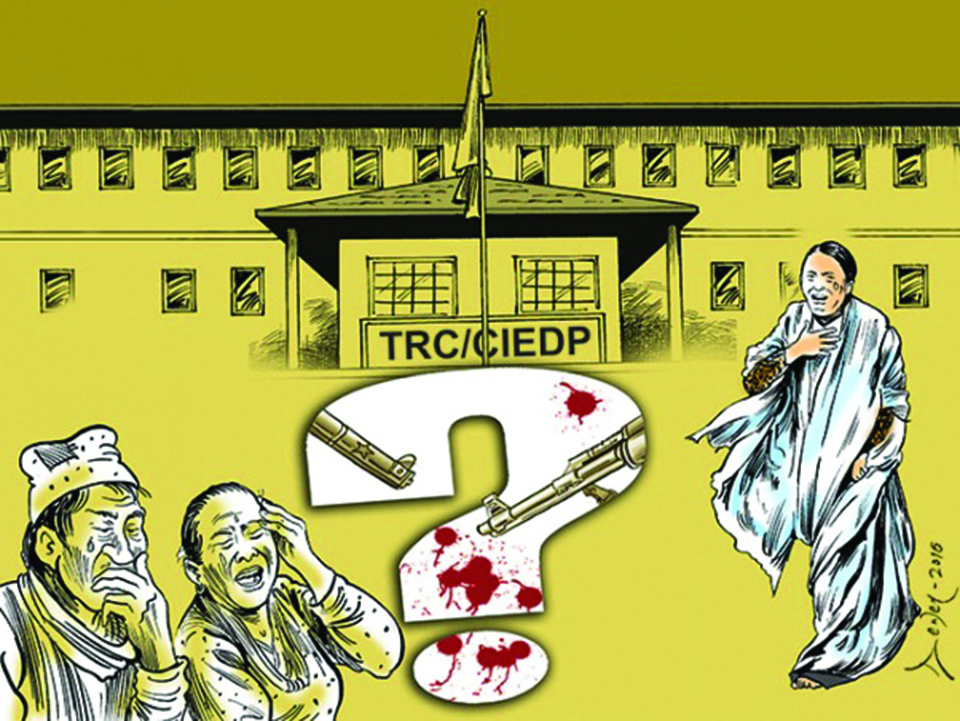KATHMANDU, Dec 12: The existing transitional justice mechanisms formed to deal with Maoist insurgency-era cases may be on the verge of closure, with leaders from the major political parties including main opposition Nepali Congress agreeing to mandate a 'high-level political mechanism' to handle what remains of the transitional justice process.
Following a series of informal meetings, second-rung leaders from major parties have tentatively agreed not to give continuity to the Truth and Reconciliation Commission once its term expires in two months, and to take ownership of the progress report prepared by the Commission of Investigation on Enforced Disappeared Persons. They believe the relevance of the CIEDP had ended as it had already completed most of its work.
At a meeting held on Sunday at the residence of ruling Nepal Communist Party leader Barshaman Pun, the leaders of major political parties, who in the past were involved in the army integration process, have reached an understanding to take ownership the CIEDP report and replace the existing TRC with an “independent and high-level commission”. They are continuously briefing ruling party chairmen KP Sharma Oli and Pushpa Kamal Dahal and NC head Sher Bahadur Deuba, it is stated.
Except for interrogating the perpetrators and providing reparations to the victims, the CIEDP has completed its preliminary investigations into disappeared cases. Since the terms of both the commissions are expiring on January 9, the disappeared persons commission is preparing a report on the progress achieved so far.
Conflict victims want suspension of recommendation committee

Sources said the chiefs of major political parties including former rebel Maoists chief Dahal will renew their broad political commitment to concluding the remaining transitional justice process and making it a nationally-led process.
They will also present a future road map for ensuring transitional justice and make such a commitment in parliament.
Stakeholders, primarily the conflict victims themselves, will be consulted over the road map, it is stated.
“A broader political commitment to transitional justice, revision of the law and its endorsement are essentials in the context of the existing mechanisms failing to expedite the transitional justice process,” said sources privy to recent development, “Efforts are on for garnering broader political commitment to concluding the transitional justice.”
Political parties want to replicate the army integration model in settling transitional justice, it is claimed.
Legal experts, rights activists and leaders of the conflict victims are working on a backdoor approach to negotiations, it is further claimed. Last month, conflict victims had publicized a charter in which they sought participation in wrapping up the long-delayed transitional justice process.
Ramesh Dhakal, secretary at the TRC, is taking a lead in revising transitional law. He said the process to revise the related law is underway.
The revision would be finalized before the terms of the two commissions expire. “Continuation of existing commissions and other key issues will be defined by the law. One can't say anything right now,” Dhakal said. “We are now collecting suggestions fro stakeholders.”
These developments come amidst opposition from a section of conflict victims and human rights activists, who have said they will not to accept any political body to replace the existing transitional mechanisms. They point out that such a body may only work as per the plans of political leaders instead of respecting the concerns of the victims themselves.































